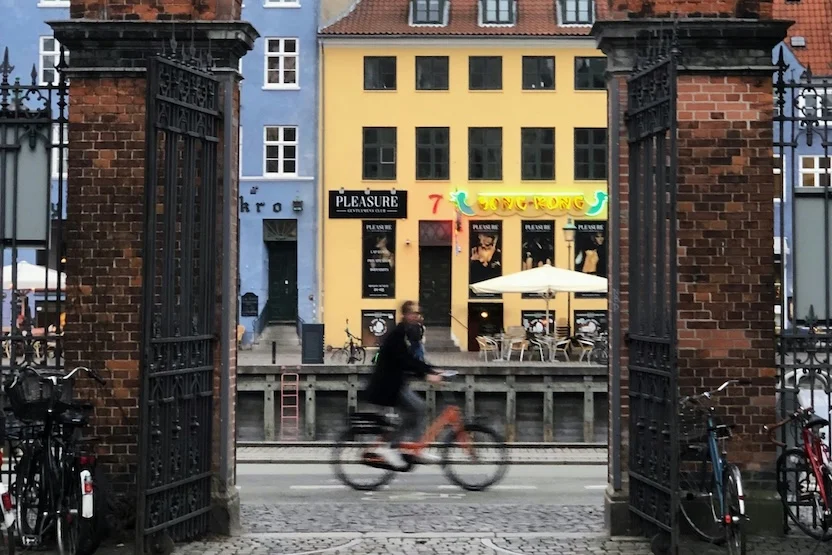
Job Seeker Visas in Europe for British Citizens (Job Offer Not Required)
Melanie Kaidan - September 9, 2025
Home > Travel Requirements, Policy & Authorization > Job Seeker Visas in Europe for British Citizens (Job Offer Not Required)
Share this post
Since Brexit, the job search abroad has become exponentially harder to navigate for Britons dreaming of uprooting their lives and moving to a country in the European Union. The freedom of movement that once made it easy to live and work across the continent is no longer a given, replaced instead with a world of red tape, visa requirements, and country-specific eligibility rules.
Luckily, some European nations have job-seeker visas that British citizens can take advantage of if they want to experience life in the EU for longer than just a holiday, but haven’t secured a work contract yet. These visas can be a vital first step for individuals seeking to immerse themselves in a country’s culture and job market, providing time to attend interviews, network, and adapt to local professional environments. They're especially helpful for those in emerging fields or creative sectors where securing a role in advance can be more difficult.
At Insurte, we want to make it easier to understand your rights when traveling abroad, so we’ve compiled a list of countries that British citizens can travel to on a job seeker visa that don’t require a prior job offer. These schemes are made for those wanting to settle in, build a social circle, and explore local life in a new country, before they find the right professional opportunity.

Germany
Germany offers a Job Seeker Visa or an Opportunity Card for third-country nationals, including British citizens, who wish to find employment in Germany. The Job Seeker Visa is available to skilled workers who have a recognised university degree or vocational qualification obtained or recognised in Germany and is valid for 6 months, allowing holders to search for employment during that time.
The Opportunity Card is scored on a points-based system and is available to foreign nationals with a professional qualification with more than two years of vocational training and work experience in the relevant field. The applicant must have German language skills at least at level A1 OR English language skills at least at level B2 of the Common European Framework of Reference for Languages (CEFR). Once the Opportunity Card is approved, it has a validity of up to a year and it allows part-time work up to 20 hours per week.
Applying for an Opportunity Card involves filling out an online form, or scheduling an appointment at the German embassy or consulate, or a Visa Application Center (VAC); preparing necessary documents, and attending an interview if required. The visa fee is €75 (approximately £63), and processing typically takes 4-6 weeks.
Both pathways require proof of financial means. Specifically, the Job Seeker Visa requires €947 (£805) per month–approximately €5,604 (£4,766) for the 6-month period. The Opportunity Card, on the other hand, requires €1,027 (£873) per month, which works out at around €12,324 (£10,482) for the year.
Please note: These costs and financial metrics are accurate as of May 2025. Always check the Embassy website for the most up-to-date pricing.

Austria
Austria welcomes highly qualified professionals from outside the EU with its Job Seeker Visa. If you meet the points-based eligibility system–based on education, experience, language skills, and age–you can stay for six months while job hunting. If successful, you can then transition to a Red-White-Red Card for longer-term residence. The application must be submitted at an Austrian consulate or authorised Visa Application Center, and the visa fee is €150 (around £127).
Applicants must score a minimum of 70 out of 100 points to qualify for a Job Seeker Visa under Austria’s system. Points are awarded for advanced degrees, relevant work experience, German or English proficiency, and other factors like awards or high-demand occupation categories. It’s advised to get your qualifications recognised by Austrian authorities before applying. This visa is a good fit for professionals in fields like IT, engineering, healthcare, and academia.
Please note: These costs and financial metrics are accurate as of May 2025. Always check the Embassy website for the most up-to-date pricing.

Portugal
Portugal offers a Residence Permit for Highly Qualified Activity, which allows British nationals to enter the country without a job offer to search for employment. They can enter the country to seek work without a job offer through the Job Seeker Visa, which allows for a stay of up to 120 days, and can be extended by another 60 days. Once they have secured a job, they can stay for up to two years under a work visa, with extensions available.
While similar requirements apply (recognized qualifications, financial means, insurance), this permit also opens a pathway to permanent residency. The process includes applying for a visa in your home country, registering with Portuguese authorities upon arrival, and submitting the final permit application locally. The application costs €90 (£79).
Portugal’s visa system is relatively accessible, with lower income thresholds compared to other Western European countries. Many British expats are drawn to the country's high quality of life and milder weather, affordability, and growing tech/startup sector. Knowledge of Portuguese can be a plus, though many multinational firms operate in English. This visa is ideal for those with strong academic backgrounds looking to make a soft landing in the Portuguese labour market.
Please note: These costs and financial metrics are accurate as of May 2025. Always check the Embassy website for the most up-to-date pricing.

Sweden
Sweden offers a Residence Permit for Highly Qualified Persons, allowing people to stay in the country for up to nine months to look for work. Applicants must have an advanced degree and demonstrate that they have sufficient financial resources to support themselves for that period of time. No job offer is required to apply for this visa.
The application process involves simply submitting an application to the Swedish Migration Agency, providing necessary documents, and awaiting approval. The permit allows British nationals to explore job opportunities in Sweden without the immediate need for a job offer. The application costs SEK 2,200 (around £171).
Applicants should budget for living costs during their stay as Sweden requires proof of approximately SEK 13,000 (approximately £1,000) per month. The Swedish labour market is particularly strong in tech, engineering, life sciences, and sustainable development sectors. English is widely spoken in professional settings, though learning Swedish may improve your chances of landing a job and speed up your integration into society. Once employed, the permit can be converted into a standard work and residence permit.
Please note: These costs and financial metrics are accurate as of May 2025. Always check the Embassy website for the most up-to-date pricing.

Czechia
The Czech Republic offers a job seeker visa, officially termed the "Residence Permit for the Purpose of Seeking Employment," specifically designed for foreign nationals who have completed their studies at a Czech university. This visa allows graduates to stay in the country for up to nine months to search for jobs or set up their own business. This opportunity is exclusively available to people who have previously held a long-term residence permit for the purpose of studies or scientific research in the Czech Republic. Upon application, you must pay an administrative fee of CZK 2,500 (around £85).
While the visa is not open to all British nationals, it’s a strong post-study option for those who’ve already invested in Czech education. Fluency in Czech is not mandatory for all roles, but can significantly enhance your chances of securing certain positions that favour having a certain understanding of the language.
Please note: These costs and financial metrics are accurate as of May 2025. Always check the Embassy website for the most up-to-date pricing.

Denmark
Denmark offers a Job-Seeking Residence Permit for foreign nationals, including British citizens, who have previously held a Danish residence and work permit under certain employment schemes but have lost their job. The permit would allow you to stay in Denmark for up to 6 months to search for new employment, provided the job loss was involuntary (e.g., due to redundancy). Applicants must apply within two days of their employment ending and demonstrate financial self-sufficiency, as the permit does not allow for social benefits or employment during the job-seeking period.
Similarly to the options provided by the Czech Republic and Germany, if you're a British citizen who has completed a state-recognised higher education programme or a PhD in Denmark, you’re automatically eligible for a job seeking residence permit. It’s a unique opportunity to extend your stay while you look for opportunities after graduation. Depending on your specific educational programme and permit type, you may be granted an additional 6 months or up to 3 years to remain in Denmark while searching for the right role for you.
Even if you weren’t automatically issued the supplementary job seeker permit after completing your studies, Denmark allows you to apply separately for an extension of up to six months or three years. Likewise, if your stay was originally for educational attachment (such as internships or research placements), you are also eligible for a six-month job seeking period.
During this time, you're permitted to work up to 90 hours per month, and full-time during the summer months of June, July, and August. For those granted a 3-year job seeking permit, Denmark offers the option to upgrade to a full, unrestricted work permit–ideal for ambitious professionals ready to integrate fully into the Danish labour market without hourly restrictions.
This job seeking permit is non-renewable beyond the maximum allowed period (6 months or 3 years, respectively). To continue living in Denmark afterward, you’ll need to apply for a new residence permit on a different basis–such as employment, if you secure a job offer.
The application process is handled by the Danish Agency for International Recruitment and Integration (SIRI) and involves completing the JS1 application form, paying a fee of DKK 6,290 (approximately £716), and submitting supporting documents such as a passport copy and proof of dismissal. Biometrics must also be recorded within 14 days of submission. If a new job is secured during this period, a new application for a residence and work permit must be submitted.
Please note: These costs and financial metrics are accurate as of May 2025. Always check the Embassy website for the most up-to-date pricing.
FAQs
Related posts
Upcoming travels ? Get Insured !
Find the right insurance for your trip by using our powerful comparison tool!





